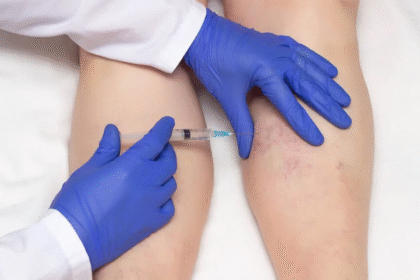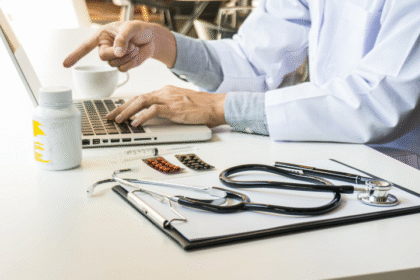The liver is one of the most vital organs in the human body, responsible for over 500 essential functions. It filters toxins from the blood, produces bile to help with digestion, stores vitamins and minerals, and supports metabolism. When the liver becomes damaged, these functions are disrupted, which can lead to liver failure, a serious and potentially life-threatening condition. Understanding the symptoms and taking preventive steps is crucial for maintaining a healthy liver and overall well-being.
Understanding Liver Failure
Liver failure can occur in two forms: acute and chronic. Acute liver failure happens suddenly, often within days or weeks, due to factors like viral infections, drug reactions, or excessive alcohol consumption. Chronic liver failure, on the other hand, develops gradually over months or years, commonly as a result of long-term liver diseases such as hepatitis, cirrhosis, or fatty liver disease. Regardless of the type, early detection and treatment can significantly improve the chances of recovery.
Early Symptoms You Shouldn’t Ignore
Liver failure often starts silently. In the early stages, symptoms may be mild and easy to overlook. However, paying attention to these warning signs can help you seek medical help in time. Common early symptoms include:
- Persistent fatigue or weakness that doesn’t improve with rest
- Loss of appetite and unexplained weight loss
- Nausea, vomiting, or an uneasy feeling in the upper right side of the abdomen
- Yellowing of the skin and eyes, known as jaundice
- Dark-colored urine and pale stools
- Itchy skin or swelling in the legs and abdomen
These signs may seem minor, but they could indicate that the liver is struggling to function properly. Ignoring them can allow the condition to worsen and lead to more serious health complications.
Severe Symptoms and Complications
As liver failure progresses, symptoms become more noticeable and severe. Patients may experience confusion, irritability, or drowsiness due to the buildup of toxins in the brain, a condition known as hepatic encephalopathy. Other complications include fluid accumulation in the abdomen (ascites), increased bleeding or bruising, and sensitivity to certain medications. At this stage, medical intervention becomes urgent, and hospitalization is often required.
In cases where the liver can no longer repair itself or regenerate healthy tissue, a liver transplant may be the only option for survival. Many patients explore their options globally and often research Liver Transplant Cost in India, as India has become a preferred destination for advanced medical treatments. The country offers highly skilled surgeons, world-class hospitals, and affordable medical care compared to Western nations, making it a popular choice for international patients seeking quality treatment at a reasonable cost.
Key Prevention Tips for Liver Health
Liver failure can often be prevented with a healthy lifestyle and regular medical care. Here are some proven ways to protect your liver and prevent damage:
- Limit alcohol consumption:
Excessive alcohol intake is one of the leading causes of liver disease. Avoid binge drinking and stick to moderate levels. For individuals with liver conditions, it’s best to avoid alcohol entirely. - Use medications responsibly:
Overuse of painkillers and certain prescription drugs can harm the liver. Always follow the prescribed dosage and avoid mixing alcohol with medications, especially those containing acetaminophen (paracetamol). - Get vaccinated against hepatitis:
Hepatitis A and B can cause serious liver infections. Vaccination is an effective way to prevent these diseases and protect your liver. - Maintain a healthy diet:
Eat a balanced diet rich in fruits, vegetables, whole grains, and lean proteins. Reduce your intake of processed foods, sugary drinks, and trans fats. Include liver-friendly foods like leafy greens, nuts, and olive oil. - Stay physically active:
Exercise helps maintain a healthy weight and reduces the risk of non-alcoholic fatty liver disease. Aim for at least 30 minutes of moderate activity most days of the week. - Avoid exposure to toxins:
Chemicals in cleaning products, aerosols, and insecticides can damage liver cells. Use protective gear and ensure good ventilation when handling such substances. - Schedule regular checkups:
People with diabetes, obesity, or a family history of liver disease should have regular liver function tests. Early detection can prevent irreversible damage.
Conclusion
Your liver is a remarkable organ with the ability to heal and regenerate, but it also has its limits. Ignoring the early signs of liver failure can lead to serious consequences, while timely intervention can save your life. By making healthy lifestyle choices, staying informed, and seeking medical care when needed, you can protect your liver and ensure it continues to perform its vital functions. Remember, prevention is always better than cure—start caring for your liver today to enjoy a healthier tomorrow.
Frequently Asked Questions (FAQs)
1. What are the most common causes of liver failure?
The main causes include chronic alcohol use, viral hepatitis (A, B, or C), fatty liver disease, certain medications, and autoimmune liver disorders.
2. Can liver failure be reversed?
In early stages, liver damage may be reversible through treatment and lifestyle changes. However, severe or chronic liver failure may require a liver transplant.
3. What foods are best for liver health?
Fruits, vegetables, lean proteins, whole grains, and foods rich in antioxidants such as berries and leafy greens support liver health. Avoid fried foods, processed snacks, and excess sugar.
4. How can I prevent fatty liver disease?
Maintain a healthy weight, exercise regularly, avoid alcohol, and follow a balanced diet low in saturated fats. Regular checkups are also important.
5. When should I see a doctor for liver issues?
If you notice symptoms like persistent fatigue, jaundice, dark urine, or swelling in the abdomen or legs, consult a doctor immediately. Early diagnosis can prevent further complications.



